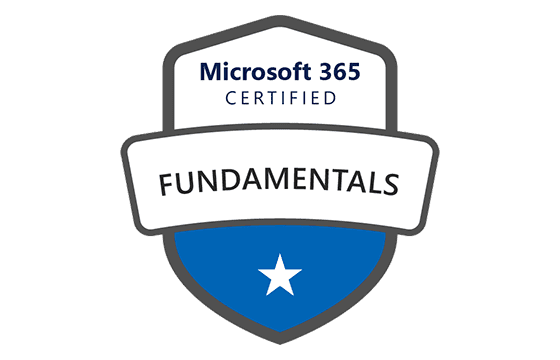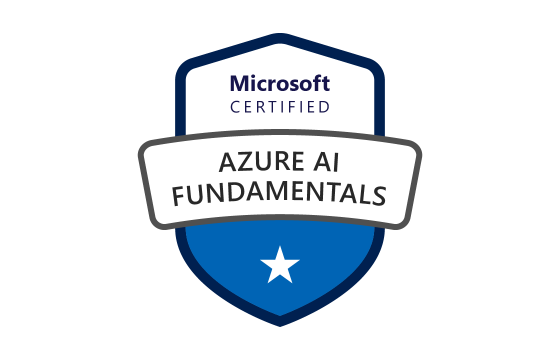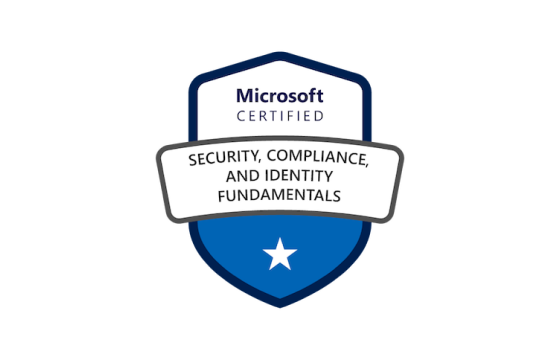Pass Your Microsoft 70-513 Exam Easy!
Get 100% Real Exam Questions, Accurate & Verified Answers By IT Experts
Fast Updates & Instant Download!
Download Free 70-513 Exam Questions
| Exam | 70-513 - TS: Windows Communication Foundation Development with Microsoft .NET Framework 4 |
| Size: | 526.55 KB |
| Posted Date: | Monday, March 5, 2012 |
| # of downloads: | 1 |
| Free Download: | This file is outdated. Browse other 70-513 VCE Files |
Top Microsoft Certification Exams
- AZ-104
- AZ-305
- PL-300
- AZ-900
- MD-102
- DP-700
- MS-102
- SC-200
- AZ-500
- SC-300
- DP-600
- AZ-204
- AI-900
- AI-102
- AZ-700
- SC-100
- AZ-140
- MS-900
- DP-203
- AZ-400
- PL-400
- SC-900
- PL-200
- AZ-800
- PL-600
- SC-400
- MS-700
- AZ-801
- PL-900
- DP-300
- MB-800
- DP-900
- MB-820
- DP-100
- MB-310
- MB-330
- MS-721
- MB-230
- MB-700
- MB-500
- PL-500
- MB-910
- MB-920
- DP-420
- AZ-120
- MB-240
- MB-335
- SC-401
- MB-280
- MB-210
- MS-203
- MO-200
- 98-349
- MB-220
- MB-260
- 62-193
- 77-727
- 98-383
- MO-201
Site Search:

Only Registered Members Can Download VCE Files or View Training Courses
Please fill out your email address below in order to Download VCE files or view Training Courses. Registration is Free and Easy - you simply need to provide an email address.
- Trusted By 1.2M IT Certification Candidates Every Month
- VCE Files Simulate Real Exam Environment
- Instant Download After Registration.
Log into your ExamCollection Account
Please Log In to download VCE file or view Training Course
Only registered Examcollection.com members can download vce files or view training courses.




























































i will face wcf vendor 19may. is this dump valid?
This dump isn't valid in Russia, less than 50% questions from dump in exam.
@Lyudmyla, good luck man. I have done mine, mission accomplished.
@Kiwironic
Thanks a lot for the explanation. I already have this book. But I did not start it yet because only next week going to pass 513. About dumps.. I have some downloadewd from this site.
@Lyudmyla, sure thing, you got it mate. I am using this material book "MCPD 70-519 Exam Ref: Designing and Developing Web Applications Using Microsoft® .NET Framework 4" and it's very very good, I can send you a link if you want. There is a 100% valid dump around and most of the people using get are getting 1000/1000 so there is really not much to do.
The book is about 260 pages or something, it can be done in two days. I found it to be easy and understandable, with all my experience developing applications with .net framework 4 and earlier I rarely find anything new except for some info for MVC which I don't have much experience with.
@Kiwironic
My aim is 519 as well. If there is a will to cooperate while preparing, discuss dumps or not clear things, I propose to communicate using the other means than comments. What you think?
Cheers mate, I'm going for the 519 exam soon, it's time to become a certified PRO after all this time developing :)
@Kiwironic
Thanks a lot for the information! And good luck in further examinations!
@Lyudmyla, thanks man, I was very unlucky sitting the exam just before your new dump, so I didn't get 1000 points :)
Regarding the new questions, some where similar, different answers but same logic (about 4 or 5) the rest was a bit confusing and most of them are about creating services and binding category and some of the new ones are about security.
@Kiwironic
And congratulations of course!!! :)
@Kiwironic
Were these new questions similar to those in brain dumps? Is it difficult to answer them studying book and msdn?
Passed, 12 new questions.
Got 900/1000. 7 new questions. Dump Valid to Brazil !
900/1000 with this dump..got 6 new questions.
@Hen I believe you are right, the answer for q17 imo is B.
proxy = new SampleServiceProxy();
Besides, Dan has tested it and had errors except for B.
@all
what about question Nr. 17 - is proxy.Abort() correct,
or is it: proxy = new SampleServiceProxy();
???
thanks
VALID - Pass today, but had 10 new questions.
Dump 100% at Brazil.
Passed with 900 score.
Tks
What proficiency do we need to select for this dump ?
Passed today 950/1000
All questiosn from this dump
I agree, although the question description - if I remember correctly - limited the solution to the server side? In either case, it's the BeforeCall method that needs to be implemented.
One more thing Tom, BeforeCall is called on the client side not the server side as you said, the reason behind this as explained before is to avoid overhead from serializing and then sending messages with invalid parameters.
Explaining it more:
"One of the main purposes for implementing a parameter inspector is to validate parameters prior to sending the message to the service. Although it would be quite possible to perform validation inside the service's method (and you probably should), the downside is that messages containing invalid parameters still have to make the trip from the client to the service. The service's throughput is reduced because it has to deal with the deserialization of the message and the construction of the response. It would be better to avoid this overhead and just reject the
message on the client side.
When injected on the client side, the BeforeCall method is invoked just prior to the parameters being serialized into the request Message object. If you are implementing client-side parameter validation, this is the place to put the logic to minimize network and service traffic. The After-Call method is invoked just after the parameters from the response Message object have been deserialized. This means that the BeforeCall method happens prior to the call, and the AfterCall method is applied to the response to that call."
Source: MCTS Self-Paced Training Kit (Exam 70-503)
"One of the main purposes for implementing a parameter inspector is to validate parameters prior to sending the message to the service. Although it would be quite possible to perform validation inside the service's method (and you probably should), the downside is that messages containing invalid parameters still have to make the trip from the client to the service. The service's throughput is reduced because it has to deal with the deserialization of the message and the construction of the response. It would be better to avoid this overhead and just reject the
message on the client side. " Source: MCTS Self-Paced Training Kit (Exam 70-503)
Therefore I agree with Dan and Tom, the answer should be 'B' Before call.
Passed on 15.3.2012 with score 1000/1000. All questions were from this dump.
A reply to the BeforeCall/AfterCall dilemma: BeforeCall is called on the server side before the service operation is invoked. So this is the right place to inspect the operation parameters.
I got that question on my exam and answered "BeforeCall", so - provided my score - this must be the correct answer.
Just confirming this dump is fully valid. Passed today !
Passed today 725 with this dump.
Approx. 10-15 new questions.
@GP, RE Before/AfterCall: I stand corrected. You are right
@GP, thanks for your replies.
Re Q112:
Yeah it's fine if InstanceContextMode is Single, but does it have to be ?
Dan for question 112 to answer is here :
http://msdn.microsoft.com/en-us/library/system.servicemodel.instancecontextmode.aspx
"If the InstanceContextMode value is set to Single the result is that your service can only process one message at a time unless you also set the ConcurrencyMode value to Multiple."
So single is fine to use for InstanceContextMode
Dan for the SampleServiceProxy I believe you are right that a new instance has to be created in order to execute the next method. However if A fault state is found then Abort is recommended because the object may be holding on to resources. I guess reading the question on the day will decide this one
http://msdn.microsoft.com/en-us/library/system.servicemodel.communicationstate.aspx
Actually I think the answer is correct As AfterCall
http://msdn.microsoft.com/en-us/library/system.servicemodel.dispatcher.iparameterinspector.aftercall(v=vs.110).aspx
On outbound calls from a client, the inspector is invoked before the request contents are serialized and sent to the service. The inspector is also called after the response has been deserialized but before the return values have been dispatched to the proxy method.
On inbound calls to a service, the inspector is invoked after parameters are deserialized but before they are dispatched to the service operation.
Since the question doesn't mention anything about Client , only service. The parameters have to be inspected before they are dispatched to the service operation. Therefore its after call
Question 112:
You are developing a Windows Communication Foundation (WCF) service that does not operate on a duplex channel.
You find that operations do not start until all previous operations have finished. The service hosting code contains the following lines.
var service = new WarehouseService();
var host = new ServiceHost(service);
You need to ensure that new operations do not wait for previous operations to finish.
Which attribute should you use to decorate the service?
I believe the right answer is B and not A.
Why does it need to be InstanceContextMode.Single ?
there are 12 to 15 new questions .. it was a difficult exam
The Answer to the following question (B) seems to be wrong as well:
You are working with a Windows Communication Foundation (WCF) client application that has a generated proxy named SampleServiceProxy.
When the client application is executing, in line 04 of the following code, the channel faults. (Line numbers are included for reference only.)
01 SampleServiceProxy proxy = new SampleServiceProxy();
02 try
03 {
04 proxy.ProcessInvoice(invoice);
05 }
06 catch
07 {
08 if (proxy.State == CommunicationState.Faulted)
09 {
10
11
12
13 proxy.UpdateCustomer(customer);
You need to return proxy to a state in which it can successfully execute the call in line 13.
Which code segment should you use at line 10?
if you abort the proxy it will transition it to the "Closed" state.
So it seems B might be the answer. (But in real life, you should still abort the old one beforehand. I guess they didn't ask what for "the right thing to do". Or, there's a mistake in the question itself)
After running a tester:
Calling a method after Abort throws the following exception:
CommunicationObjectAbortedException: {"The communication object, System.ServiceModel.Channels.ServiceChannel, cannot be used for communication because it has been Aborted."}
Calling Open throws the following:
System.InvalidOperationException was unhandled
Message="The communication object, System.ServiceModel.Channels.ServiceChannel, cannot be modified while it is in the Opened state."
The only thing that actually works is creating a new instance. So the answer is B.
8 new questions, passed today 800/1000
some questions from 70 515 WCF section ..
Vishal dude, was the question Dan mentioned in the exam, and what was your answer? Cheers,
Passed today with 1000/1000. This dump is 100% valid.
I agree with Dan on this question:
AfterCall: Called after client calls are returned and before service responses are sent.
BeforeCall: Called before client calls are sent and after service responses are returned.
I cant see why it would be AfterCall? Anyone else like to confirm ?
I believe the Answer for the following question is wrong:
A Windows Communication Foundation (WCF) service handles online order processing for yourcompany.You discover that many requests are being made with invalid account numbers. You create a classnamed AccountNumberValidator that has a method named Validate. Before the message isprocessed, you need to validate account numbers with AccountNumberValidator and rejectmessages with invalid account numbers. You create a new class that implements theIParameterInspector interface. Which code segment should you use in this class?
It should be B:
ublic void AfterCall(string operationName,object[] outputs,object returnValue,object correlationState){return;}public object BeforeCall(string operationName,object[] inputs){string accountNumber = GetAccountNumber(inputs);var validator = new AccountNumberValidator();if (!validator.Validate(accountNumber)){throw new FaultException();}return null;}
Passed today (925/1000). Only 40 min of 100min needed. Almost all the questions from this dump, a few from recent other dump and 4 were new.
By the way, I think there's a wrong answer in this dump. When using DataMemberAttribute Order property, this is how SOAP elements are sentt:
1st. DataMembers inherited.
2nd. Members without Order property, alfabetically.
Finally. Members with Order property, increasenly.
Nevertheless, thanks a lot for these dumps. Great work!
Passed today.
Used this in combination with Remmie_110 and FSAN_135q (Some questions differs in answers..)
No new questions
@Fran answer is BasicHttpContextBinding
Passed today
100% valid dump in Bangladesh score 975/1000 - 46 questions
all questions from this dump
Please Select "Low Proficiency"
thank you WASP
Wich binding is compatible with ASP.NET to make use of the session state?.
In 135q dump, answer is NetTcpBinding
In 134q dump, answer is BasicHttpContextBinding
Thx for the upload and for the great job done in this website
Some answer are differ with 135q Dump
can any body tell me that those are correct?
Add Comments